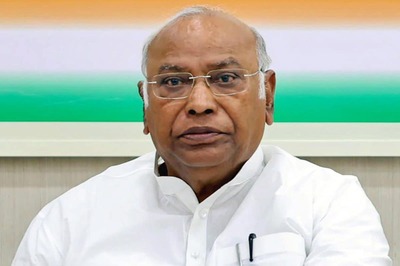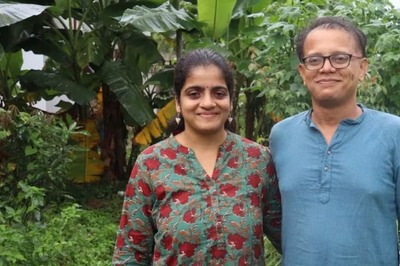
views
Imagine Lady Macbeth telling Macbeth, "Tum toh do kaudi ke kaam ke nahi hain"? Even Macbeth sounds fun, right? Well, may be that’s the kind of effect the Deccani dialect, popularly known as Hyderabadi Hindi has on Hyderabadis.After the creation of music tracks, movies, television commercials in the Deccani dialect, here comes a play, Walimiyan Shaikpeer Ki Macbeth.Conceived and directed by 20 students from St Francis Degree College for Women, the play is aimed at popularising the legendary Shakespearean play, Macbeth by scripting it completely in Hyderabadi Hindi.A first-of-its-kind adaptation of Macbeth in Hyderabadi Hindi was the opening act at the Hyderabad Theatre Festival, in the city, held on December 16.All the characters, be it Macbeth, Macduff or Lady Macduff conversed in Urdu and not in Elizabethan English.As the title suggests, Walimiyan Shaikpeer ki Macbeth, this unconventional adaptation of the English play was the highlight of the six-day festival.Talking more on this was, Pranay Rupani, professor, mass communication department, St. Francis college, “We were looking at a play, which is easier for people to understand and also make it fun for them. We have a few minor changes, but the plot remains the same”Laying emphasis on choosing the language, he said, “If the Hyderabadi Theatre Festival does not have a Hyderabadi flavour, then what’s the point!” Names of the characters were also adding their own flavour to the play. Like, Macbeth is called Maqbool and Lady Macbeth is called Ahilya-e-Maqbool.The play had about 12 actors, with Rebecca Sassiya donning the role of Macbeth and Malliha Fatima playing Lady Macbeth and about eight girls helping with the backstage work.Expressing her love for the play, Malliha Fatima says, “I have been a great fan of Shakespeare and Macbeth is a great script to work on. And on the same side I also love Hyderabadi Hindi. So, we thought of combining both of them for a play, and I guess it worked well.”The dialogues of the play have been written by Khansa Khatoon and Malliha Fatima. “12 hours of work and the script was ready,” Malliha said and added, “I have always felt that the Deccani dialect is very much neglected on stage.People use it a lot for conversing, but using it on stage is not very common.”




















Comments
0 comment